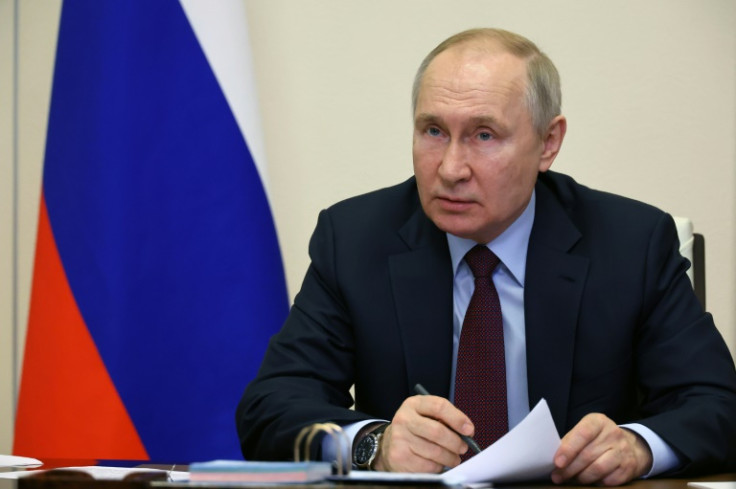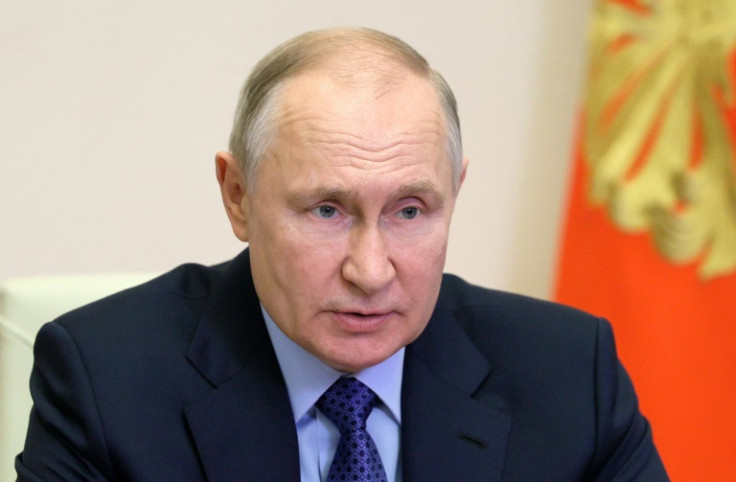Putin Wanted To Be 'Mastermind Of Successful' Ukraine Invasion Before Everything Failed: ISW

KEY POINTS
- Putin likely wanted to position himself as the sole commander of the Ukraine invasion
- His plan led to intense factionalization and disorganized command structures in the war
- Russia appointed a military commander in early April after its failed attempt to take over Kyiv
Russian President Vladimir Putin wanted to be known as the "mastermind" of the invasion of Ukraine before the initial part of the operation failed, according to a Washington think tank.
Russia launched its full-scale invasion of Ukraine on Feb. 24, 2022. At the time, Western officials said Russia's army did not have a single commander and was following orders from Putin. This suggested that Putin likely aimed to position himself as the sole commander and mastermind of the invasion had it turned out to be successful, as stated in the latest assessment report from the Institute for the Study of War (ISW).
"Western officials reported in April 2022 that Russia had not have a single military commander of its forces in Ukraine since the start of the invasion on February 24, 2022. Putin likely sought to present himself as the commander-in-chief and the mastermind of the successful invasion of Ukraine," the report read. "Captured Russian military plans revealed that the Kremlin expected Russian forces to capture Kyiv in mere days, and Putin had likely wanted to declare this speedy invasion a personal geopolitical victory."
The assessment further said that Putin, and the Kremlin, expected a swift end to the war in Ukraine in mere days. His plan, however, backfired and led to intense factionalization, disorganized command structures and unrealistic expectations.
In early April, Putin then appointed Gen. Alexander Dvornikov to take over the invasion after Russia's failed attempt led to it withdrawing its troops from Kyiv. Dvornikov previously oversaw Russia's campaign in Syria and had a history of targeting civilian populations.
Dvornikov was replaced less than two months later after he failed to achieve Putin's expectations. Putin appointed Army Gen. Gennady Zhidko who, at the same time, was also appointed to replace Eastern Military District (EMD) commander Col. Gen. Alexander Chaiko.
The Russian army then began introducing more commanders under Zhidko's leadership in June and July of last year. Command changes followed in the months after, especially during the start of Ukraine's successful counteroffensives, which saw it taking back swaths of territory in the temporarily occupied regions of Kherson and Kharkiv.
Russia's military shake-up continued in April, with Putin firing Col. Gen. Mikhail Mizintsev, who was responsible for the brutal bombing of the southern port city of Mariupol. It is unclear why Mizintsev was fired but an alleged "friend" of the general said he was removed due to "logistics."
On April 30, Russia announced that Mizintsev is being replaced by Aleksey Kuzmenkov, a colonel-general who had served as the head of logistics headquarters of the Russian armed forces, a commander for logistics in the Southern Military District and a deputy director for the Russian National Guard.

© Copyright IBTimes 2025. All rights reserved.






















